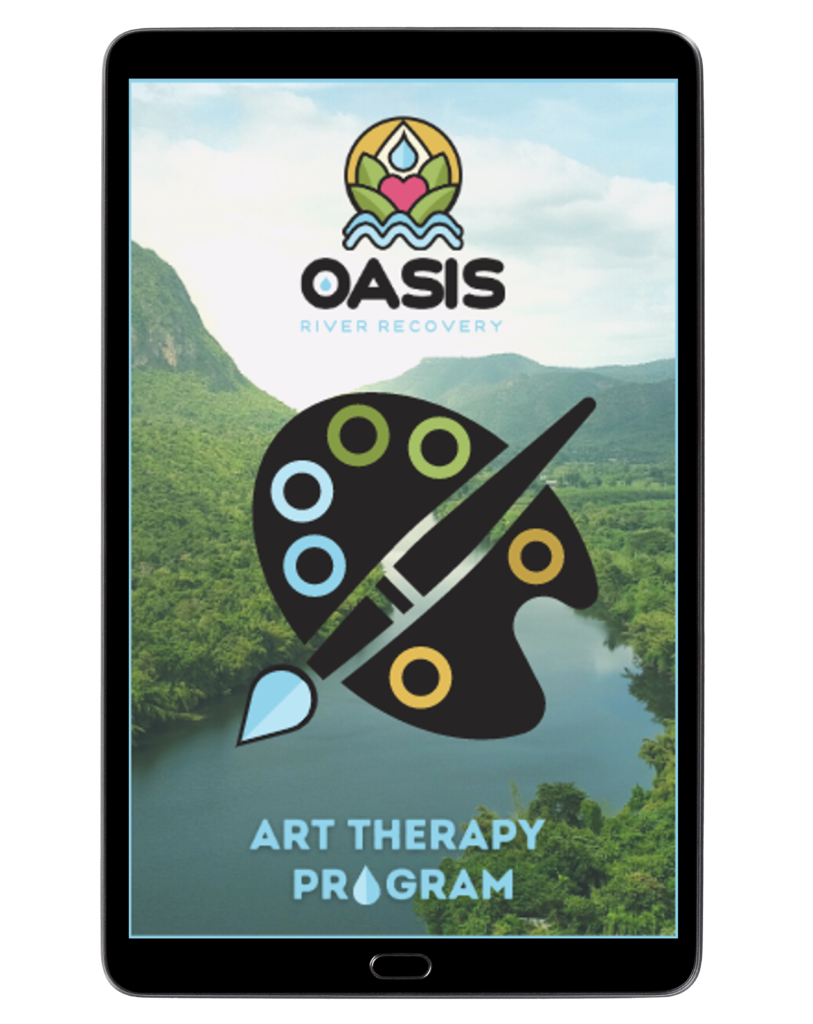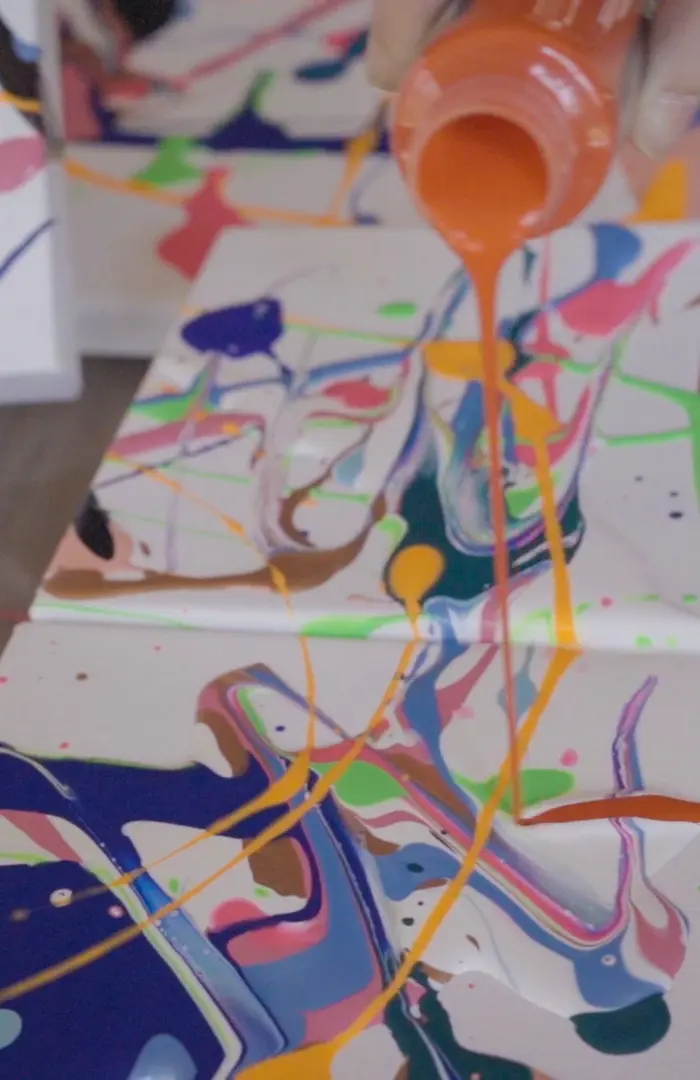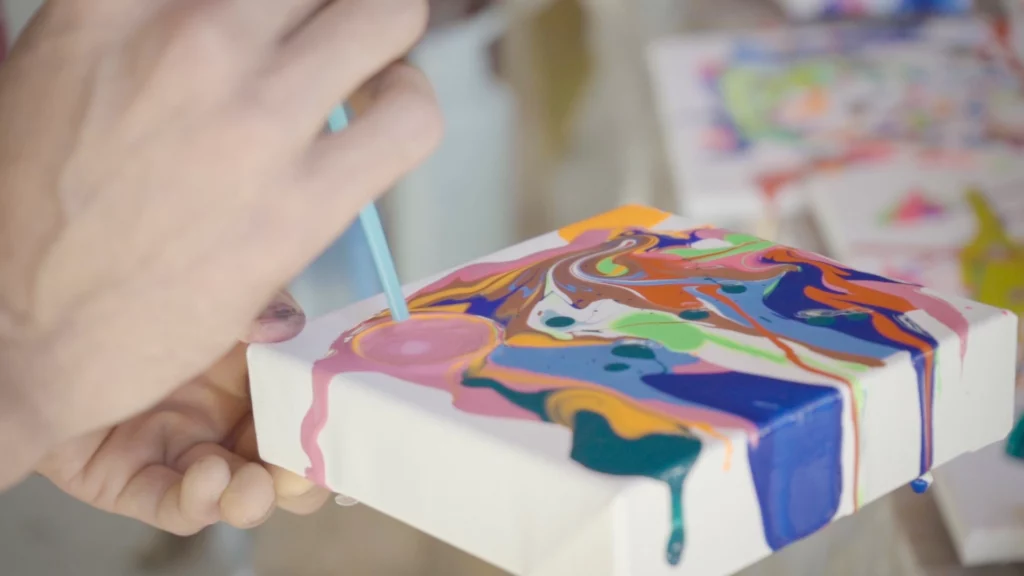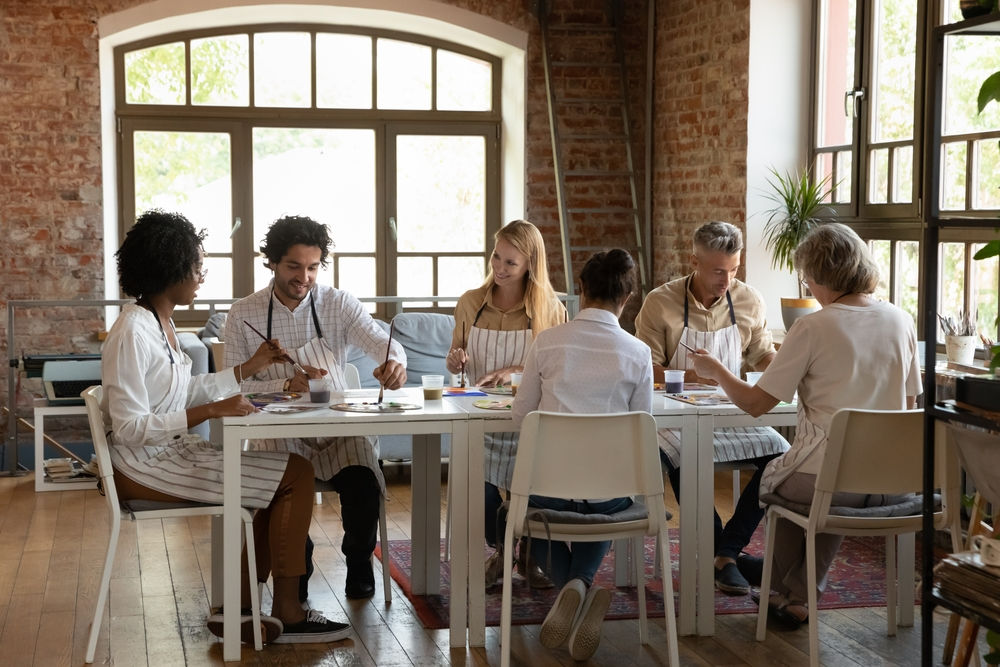TREATMENT THERAPIES
Oasis River Recovery uses art therapy to focus on the natural creativity of individuals in addiction recovery, using mediums like visual art, music, writing, sculpting, or spoken word to help clients express themselves and deal with substance abuse and mental health disorders in a safe setting.
Art therapy can help people with substance use disorders find ways to process past traumatic experiences, express themselves creatively, and develop healthy coping skills.
Adventure therapy takes its roots in the wilderness therapy movement of the 1960s and has been adopted as a form of experiential therapy by recovery centers worldwide. We offer Art Therapy to give our patients a higher self-awareness using the extraordinary world around them. Art therapy's creative process allows individuals to delve into their experiences, hardships, and unresolved emotional pain. As part of their substance abuse treatment, individuals will be encouraged to find positive outlooks, introspect, and verbalize the complex emotions and sentiments intertwined with their past struggles or mental health conditions.


Just getting rid of harmful substances is not enough to beat addiction. To overcome it, you need to understand why it happened in the first place, what makes you want to recover, and what challenges you need to face. The goal of art therapy is to provide an avenue for emotional release and self-expression during the psychological recovery process.
Art therapy's creative process allows individuals to delve into their experiences, hardships, and unresolved emotional pain. As part of their substance abuse treatment, individuals will be encouraged to find positive outlooks, introspect, and verbalize the complex emotions and sentiments intertwined with their past struggles or mental health conditions.
Combining art therapy with detox, individual therapy, and other traditional therapies can be a successful approach to addiction treatment. When emotions or experiences are difficult to articulate verbally, they can be expressed through various mediums such as paint, ink, or clay. These sessions are not limited to individuals with an artistic background or talent and can benefit anyone with an open mind and active engagement.
Typical art therapy treatment programs include incident drawing, stress painting, art journal creation, and sculpting. However, there are also unconventional techniques that are effective in boosting self-expression, improving mental health, and reducing emotional distress.
Unconventional art therapy techniques include creating a self-portrait as either a plant or animal, picturing and drawing an imaginary planet, painting different moods to express empathy, scribbling an imaginary scene in the air, and guessing what it is, creating a mandala to reduce stress, and destroying a drawing to create a new work as a collage.
Another unique activity is creating an altar to honor a loved one using photographs, mementos, gifts, letters, and crafts. This activity helps the patient better understand the importance of human bonds and find comfort and healing in tough times.

Oasis River Recovery strives to provide a unique recovery program unlike anything offered in the area. By incorporating evidence-based treatment, experiential therapy methods, and holistic healing modalities, we've created a program that blends into our location's natural beauty
Art therapy is:

Oasis River Recovery's art therapy program is broken into thirteen groups/stages.
This group aims to enhance problem-solving skills, coping skills, and knowledge of each participant's communication style. It also aims to promote creativity and healthy ways to manage obstacles.

The focus of this group is to encourage self-reflection and mindfulness about how individuals express themselves and present themselves to the world.

This group aims to help clients define what their recovery and well-being means to them. It emphasizes teamwork, building confidence, and group communication.

This group activity aims to increase mindfulness of individual strengths and inner resources. Clients create a project that represents their past struggles, current support systems, and hopes
for the future.

This grounding exercise involves using visual boundaries to help clients feel safe while exploring their emotions. It can be used as a warm-up activity to facilitate deeper journaling or self-reflection.

This group combines creative writing and visual art to encourage clients to develop new narratives to challenge their anxieties. Participants journal about their worries and then circle positive words to create new sentences, drawing over the negative words to symbolize
positive growth.

The goals of this group are to foster creative problem-solving, increase confidence, promote group cohesion, and provide a visual representation of clients' feelings and goals.

This group incorporates IFS narrative therapy, which encourages clients to externalize their inner parts and desires to develop greater appreciation and compassion for themselves.

This five-part series is designed to help clients visualize their recovery journey. It leads them through the decision to seek help (Group 9), crossing the bridge into recovery (Group 10), weighing the costs and benefits of sobriety (Group 11), imagining their life a year in the future (Group 12), and finally identifying any recovery barriers (Group 13).
If you or a loved one could benefit from art therapy or our other addiction treatment programs, take the first step and call Oasis River Recovery. Our behavioral health team is dedicated to helping individuals struggling with drug addiction or alcohol addiction find a treatment plan that helps them on their road to recovery. Once we identify your specific needs or mental health disorders, we'll find treatment options that can help, such as art therapy, group therapy, or cognitive behavioral therapy.
Recovery is not something you have to do alone, nor will you be left on your own when you leave our inpatient or outpatient treatment center. That's why we create structured relapse prevention plans to help you on the rest of your recovery journey and build a happier, healthier life.
If you or a loved one could benefit from art therapy or our other addiction treatment programs, take the first step and call Oasis River Recovery. Our behavioral health team is dedicated to helping individuals struggling with drug addiction or alcohol addiction find a treatment plan that helps them on their road to recovery. Once we identify your specific needs or mental health disorders, we'll find treatment options that can help, such as art therapy, group therapy, or cognitive behavioral therapy.
Recovery is not something you have to do alone, nor will you be left on your own when you leave our inpatient or outpatient treatment center. That's why we create structured relapse prevention plans to help you on the rest of your recovery journey and build a happier,
healthier life.
At Oasis River Recovery, our mission has always been to provide compassionate, evidence-based care for those seeking recovery. However, we want to inform you that Oasis River Recovery center is currently paused and not accepting new patients at this time.
While this program is on hold, we are grateful to be part of the HCANA network, which includes two outstanding recovery centers that are currently accepting patients and can offer the same high-quality care:
Oasis Recovery Center – Located in the heart of Asheville, NC, this facility provides personalized addiction treatment in a supportive, healing environment.
Knoxville Recovery Center – A trusted provider offering comprehensive addiction and mental health treatment in Knoxville, TN, with a focus on long-term recovery.
Both centers operate under the same commitment to excellence as Oasis River Recovery and are ready to help you or your loved one begin the journey toward healing.
If you have any questions or need assistance finding the right program, please don’t hesitate to reach out to either Knoxville Recovery Center or Oasis Recovery Center. We’re here to support you in finding the care you deserve.
Thank you for trusting us with your recovery journey. We hope to serve you again in the future.